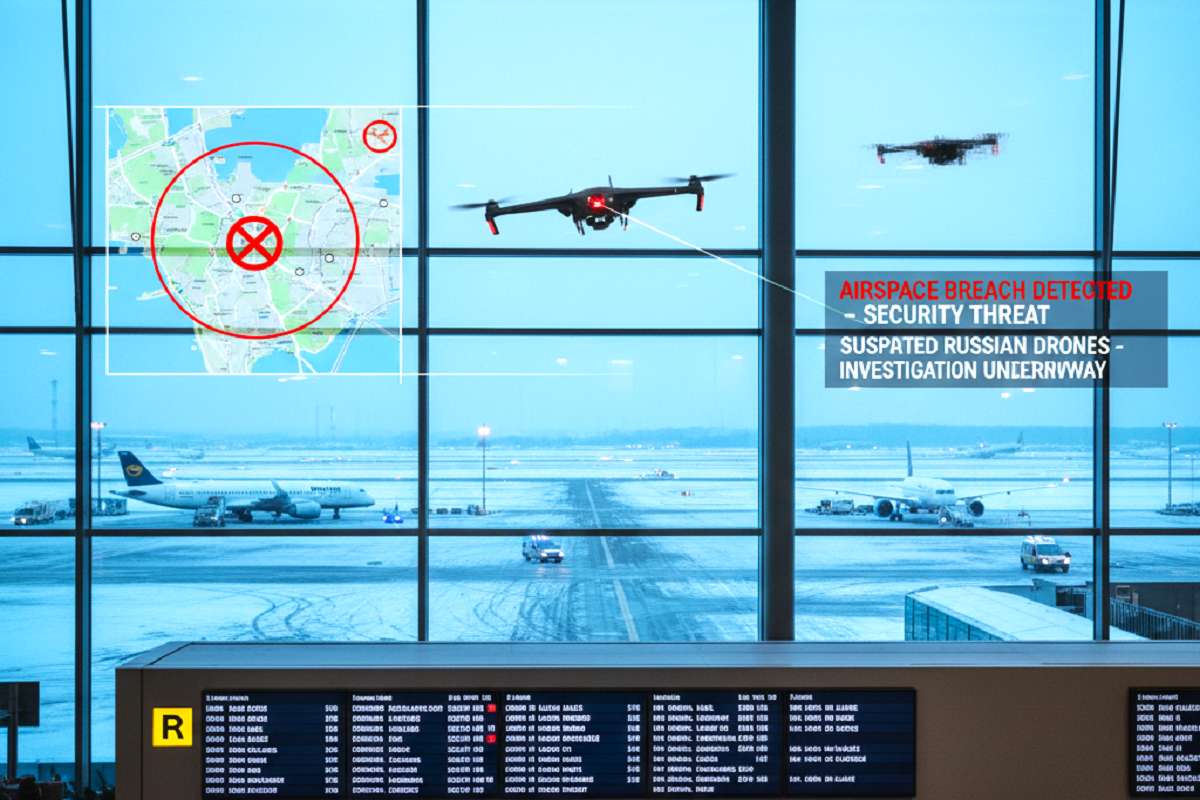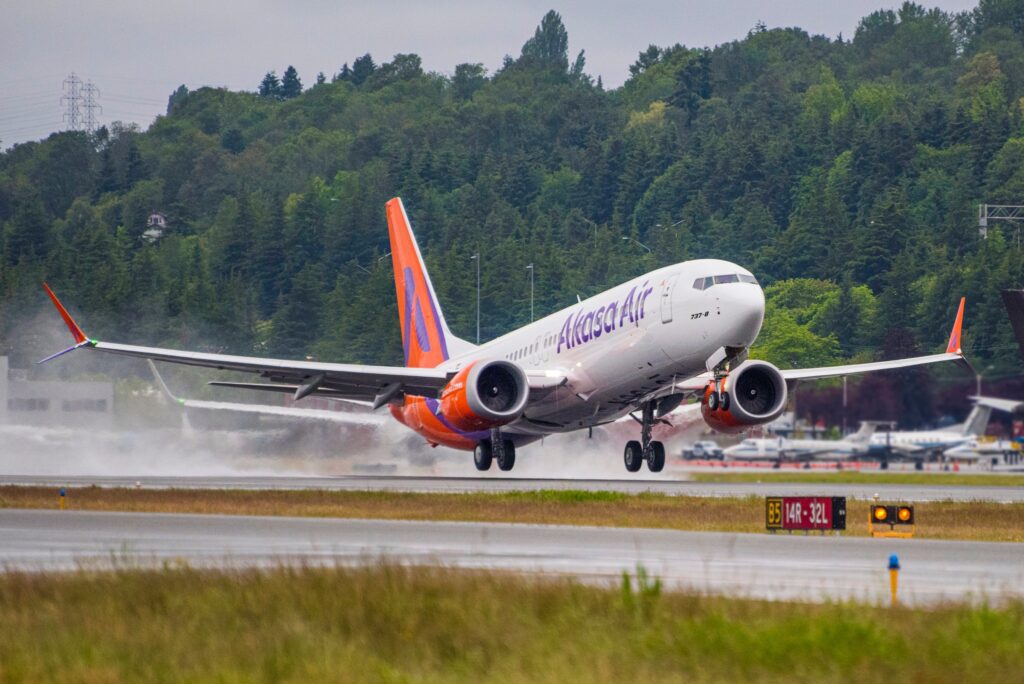Munich Airport suspended operations late Thursday and again Friday night after suspected Munich Russian drones were spotted near its runways, forcing flight cancellations, diversions, and a growing security inquiry. Authorities say the unmanned vehicles flew away before being identified, heightening fears of foreign interference amid ongoing drone incursions across Europe.
Airport Shutdowns and Passenger Disruption
Shortly before 11 p.m. local time Friday, German federal police confirmed two drone sightings near the north and south runways of Munich Airport, prompting a full suspension of flight operations. The airport was already operating under strain after a similar shutdown Thursday night, which saw 17 departures canceled and dozens of incoming flights diverted.
By early Saturday morning, operations resumed gradually from around 7 a.m. local time, though delays and logistical backlogs permeated the system. A total of 46 flights were canceled or delayed overnight, affecting approximately 6,500 passengers after combining the two incidents.
Airport officials and the federal police emphasized that the drones departed before any identification could be made. Authorities have not named any suspects or claimed attribution.
Context: Rising Drone Incursions in Europe
The Munich incidents form part of a broader escalation of unidentified drone overflights in NATO and EU airspace observed in several countries in recent weeks. Germany and Belgium, among others, have reported drone sightings near military bases, critical infrastructure, and airports.
A confidential police report cited by Bild describes drones spotted in Munich as being “used militarily,” though the origin and ownership remain unverified. Interior Minister Alexander Dobrindt called the wave of incidents a wake-up call, vowing to boost drone defense capabilities and calling for legislation to simplify military interception.
In previous encounters, Danish authorities reported drone flyovers over Copenhagen Airport, and Norway closed runways due to unidentified aerial objects. These developments amplify fears that the Munich occurrences may not be isolated events.
Are These Drones Russian? Investigations Ongoing
While speculation has circulated about Russian involvement—given the ongoing war in Ukraine—no definitive evidence links Moscow to the Munich sightings. Russian authorities have formally denied any role in these incidents.
Some analysts caution that attribution of drone incidents is inherently difficult. Drones can be launched remotely, disguised, or operated via proxies. Others argue that in the context of hybrid warfare, such incursions may serve to probe air defenses or sow uncertainty.
German security sources are reportedly assessing telemetry, radar logs, and possible launch vectors. The Erding military base, which houses drone development capabilities and lies close to Munich, was also reportedly in the flight path during earlier closures—raising further questions for investigators.
Implications for Air Travel & Security Policy
For travelers, the incident underscores an urgent need for redundancy and contingency planning when flying through European hubs. Even short suspensions of service can cascade across connections and airline schedules.
From a policy standpoint, the Munich closures intensify pressure on European governments and NATO allies to deploy counter-drone systems—including radar detection arrays, jamming technology, and legal frameworks authorizing defensive measures like takedowns. Interior Minister Dobrindt has already vowed to establish a drone defense unit and push for legislation to permit military intervention in domestic drone threats.
The recurring pattern of drone incursions raises questions about the resilience of European aviation infrastructure and the readiness of airspace defense systems at a time of geopolitical tension. Should such incidents escalate or become more frequent, the knock-on effects on security, commerce, and public confidence could be significant.
FAQs
A: No. Authorities have not confirmed any national attribution, and Russian officials deny involvement.
A: Across both nights, about 46 flights were canceled or delayed, affecting roughly 6,500 passengers.
A: Yes. Airport operations resumed gradually Saturday morning after the overnight shutdown.









